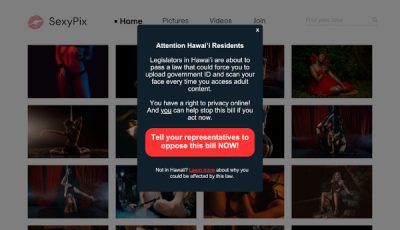3rd Time’s the Charm: 3rd Circuit Remands 2257
 PHILADELPHIA – The Third Circuit U.S. Court of Appeals on Wednesday vacated a lower court’s July 2013 ruling declaring constitutionally valid the federal labeling and recordkeeping statutes pertaining to the adult entertainment industry. In light of two recent Supreme Court decisions, the appellate court remanded Free Speech Coalition v Attorney General to U.S. District Judge Michael M. Baylson’s court for reconsideration on First Amendment grounds.
PHILADELPHIA – The Third Circuit U.S. Court of Appeals on Wednesday vacated a lower court’s July 2013 ruling declaring constitutionally valid the federal labeling and recordkeeping statutes pertaining to the adult entertainment industry. In light of two recent Supreme Court decisions, the appellate court remanded Free Speech Coalition v Attorney General to U.S. District Judge Michael M. Baylson’s court for reconsideration on First Amendment grounds.
The three-judge circuit panel also ordered the lower court to declare unconstitutional the warrantless searches provisions in the statutes.
Wednesday’s decision represented the third time the circuit court has weighed in on the case, which challenges 18 U.S.C. §§ 2257 and 2257A. The statutes and the associated enforcement regulations require adult content producers to keep an onerous amount of records proving minors are not employed in the making of sexually explicit materials. In addition, producers must make their records available for inspection upon demand and without prior notice.
Baylson’s previous ruling invalidated only one small section of the enforcement regulations under the Fourth Amendment’s search-and-seizure provisions. He deemed the statutes themselves constitutional under the First Amendment because they were “content-neutral.” In other words, Baylson determined the government did not single out the adult industry because of the nature of the material the industry creates.
The appellate court disagreed.
“Here, each of the Statutes we review is clearly content-based on its face,” Circuit Judge D. Brooks Smith wrote for the majority. “The Statutes apply only to ‘visual depictions . . . of actual sexually explicit conduct,’ and of ‘simulated sexually explicit conduct’… Thus, strict scrutiny applies because the Statutes’ restrictions ‘depend entirely on the communicative content’ of the speech.”
“Strict scrutiny” requires a court to determine whether statutory restrictions further a compelling interest and are narrowly tailored to achieve that interest.
Quoting previous case law, Smith wrote “‘[a] law that is content-based on its face is subject to strict scrutiny regardless of the government’s benign motive, content-neutral justification, or lack of ‘animus toward the ideas contained’ in the regulated speech.’ …[A]n innocuous justification cannot transform a facially content-based law into one that is content-neutral.”
The circuit court also found “facially unconstitutional under the Fourth Amendment” the inspection provisions requiring producers to make their records available for warrantless examination “at all reasonable times.”
“…[T]he inspection regime is unconstitutional because the administrative search exception to the warrant requirement for closely regulated industries is inapplicable,” Smith wrote, noting that the adult industry, unlike “closely regulated industries” that might destroy or hide evidence if the government were required to obtain a warrant, has an expectation of privacy.
“The pornography industry … is not subjected to a level of regulation even approximating the pervasive regulation aimed at the liquor industry, firearms dealing, mining or independent automobile junkyards,” Smith wrote. “…[N]o one is required to obtain a license or register with the Government before producing a sexually explicit image… The creation of sexually explicit expression is better characterized by its lack of regulation than by a regime of rules governing such expression.
“Thus, the inspection regime prescribed by the Statutes … is facially unconstitutional.”
While the adult industry may see the circuit court’s ruling as a victory, Smith cautioned that the challenged statutes might survive a strict-scrutiny analysis under the First Amendment.
“By remanding for an application of strict scrutiny, we are not ‘dooming’ the Statutes…” he wrote. “Nothing in our analysis dictates a conclusion that the Statutes will not (or will) pass strict scrutiny.”
The original version of § 2257 dates to 1988; § 2257A, enacted in 2004, expanded not only the definition of sexually explicit material to cover the internet and other digital media, but also significantly broadened the definitions of primary and secondary producers. Since a 2007 addendum, the laws also encompass simulated sexual activity. Adult industry trade association Free Speech Coalition has been challenging the laws in court since 2005.
The Third Circuit’s opinion is here (PDF): ThirdCircuit_2257opinion_060816













